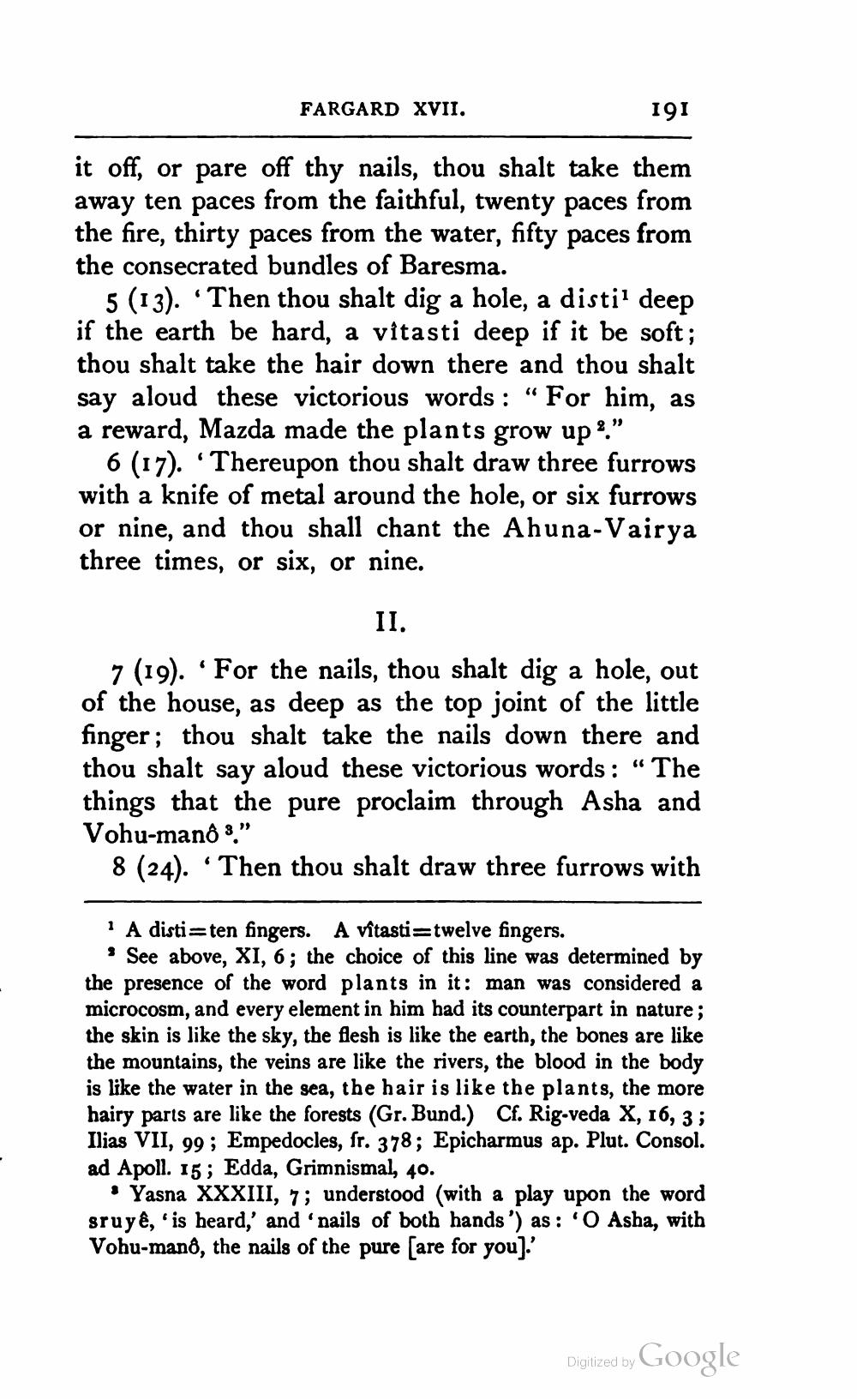________________
FARGARD XVII.
191
it off, or pare off thy nails, thou shalt take them away ten paces from the faithful, twenty paces from the fire, thirty paces from the water, fifty paces from the consecrated bundles of Baresma.
5 (13). «Then thou shalt dig a hole, a disti? deep if the earth be hard, a vitasti deep if it be soft; thou shalt take the hair down there and thou shalt say aloud these victorious words : "For him, as a reward, Mazda made the plants grow up."
6 (17). "Thereupon thou shalt draw three furrows with a knife of metal around the hole, or six furrows or nine, and thou shall chant the Ahuna-Vairya three times, or six, or nine.
II. 7 (19). 'For the nails, thou shalt dig a hole, out of the house, as deep as the top joint of the little finger; thou shalt take the nails down there and thou shalt say aloud these victorious words: “The things that the pure proclaim through Asha and Vohu-mano 8."
8 (24). "Then thou shalt draw three furrows with
A disti=ten fingers. A vítasti=twelve fingers. * See above, XI, 6; the choice of this line was determined by the presence of the word plants in it: man was considered a microcosm, and every element in him had its counterpart in nature; the skin is like the sky, the flesh is like the earth, the bones are like the mountains, the veins are like the rivers, the blood in the body is like the water in the sea, the hair is like the plants, the more hairy parts are like the forests (Gr. Bund.) Cf. Rig-veda X, 16, 3; Ilias VII, 99; Empedocles, fr. 378; Epicharmus ap. Plut. Consol. ad Apoll. 15; Edda, Grimnismal, 40.
• Yasna XXXIII, 7; understood (with a play upon the word sruyê, 'is heard,' and 'nails of both hands') as: 'O Asha, with Vohu-mand, the nails of the pure [are for you].
Digitized by Google




